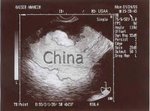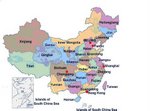
9 months = 273.931649 days
Nine (pinyin jiu) is considered a good number in Chinese culture because it sounds the same as the word "longlasting" (pinyin jiu). The Japanese consider 9 to be unlucky, however, because it sounds similar to the Japanese word for "pain" or "distress" (kunrei ku).
Nine is strongly associated with the Chinese dragon, a symbol of magic and power. There are nine forms of the dragon, it is described in terms of nine attributes, and it has nine children It has 9×13 scales, 9×9 being yang (masculine, or bad influence) and 9×4 being yin (feminine, or good influence).
Magic Number "9":
The ancient Chinese considered numbers a mystical part of the universe. As an odd number, the number "9" belongs to the "yang" category, which represents strength and masculinity. In ancient China, the number "1" represented the starting point while the number nine represented infinity and extremity. The number "9" can be seen in many aspects of life in China.
The ancient Chinese considered numbers a mystical part of the universe. As an odd number, the number "9" belongs to the "yang" category, which represents strength and masculinity. In ancient China, the number "1" represented the starting point while the number nine represented infinity and extremity. The number "9" can be seen in many aspects of life in China.
For example, "Jiu Zhou" is a poetic name referring to the nine states, which means that the country encompasses so much territory that it is beyond measure. The highest heavens were referred to as the "ninth heaven", "Jiu Quan" or "the ninth spring" where the afterlife is located beneath the deepest water. In the royal palace or a monastery, the doors, windows, stairs or fixtures existed in multiples of nine or a number that contains nine. The numbers of the gilded knobs on the double doors of the major gates of the Forbidden City is a good example.
There are nine rows of nine knobs on these doors which represents the supreme power of the emperor. The East Flowery Gate, however, is an exception beca se it has nine rows with eight knobs. The explanation lies in the fact that even numbers belong to the "ying" category, and therefore, funeral processions of the three Qing emperors passed through this only gate with even numbers of the double doors.
The Chinese tended to view life diametrically. So when a change occurred in one aspect of life, that change was a result of a change in its opposite. Therefore, as a symbol of extremity, "9" in Chinese Culture is also a warning, a turning point. In ancient Chinese Classic Yijing, or the "Book of Changes", wherever number "9" appears, it is a crucial point of change and transformation.
In traditional Chinese culture, the number nine has great significance. For example, the ninth day of the ninth month has long been a very important festival in China. This festival is known as the Double Yang Festival, which was a time for wine and poetry inspired by the beautiful autumn scenery. In the past, Chinese scholars would climb nearby mountains and look into the distance and think of their faraway friends.















1 comment:
Happy 9 Months!! We are getting closer!
Post a Comment